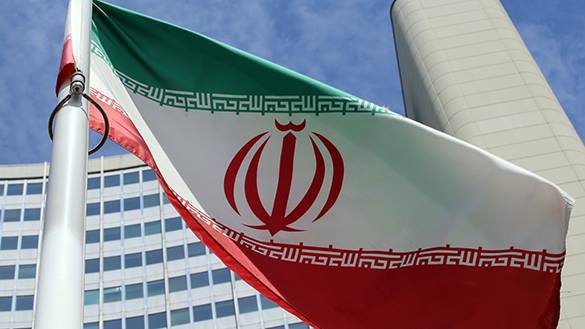Another conflict brewing in the Gulf
Last week, Iran released statements expressing "angry condemnation" and issued a "severe warning" to Bahrain. It was said that the authorities of the Kingdom stripped an opposition Shiite activist of citizenship and deported him from the country. In response, Iran threatened to topple the "bloody regime" in its neighboring country.

Iran's demarche against Bahrain can not be ignored. After the pogrom of the Embassy of Saudi Arabia a few months earlier, harsh statements from Tehran addressing Manama suggest a certain trend of behavior from the Iranian side.
So what really happened?
The Bahraini authorities decided to revoke citizenship and deport Shiite preacher Ayatollah Isa Qassim, who was recognized as a "foreign agent." It was stated that the preacher used religion for political purposes to serve foreign interests. The decision was taken in accordance with the law that stipulated for an opportunity to revoke citizenship from a person in cases that jeopardize the security of the state.
In response, Iranian General Qasem Soleimani, the head of the special forces of Al-Quds, a part of the Islamic Revolutionary Guard Corps, stated the following: "...Aggression against Isa Qassim is a red line, and crossing it will engulf Bahrain and the whole region in flames... It will not leave any choice for people, but to resort to armed resistance ... The bloodthirsty regime will be overthrown."
The terms that General Soleimani used, were, frankly, surprising. The "red line", "armed resistance of people", "overthrow the bloody regime" - we have heard all that before from Washington in relation to Syria. One may say that the world is used to America's rhetoric (it all started with "terrorist states", concocted during the 1980s by the Reagan administration). Yet, it is unusual to hear Iranian officials resorting to a similar style in their rhetoric.
Until recently, Iran would be regularly subjected to criticism from the US. The US media used bright epithets to describe the "repressive policies of the regime of the mullahs" against the opposition. Apparently, against the backdrop of the "nuclear deal" and the opening of the Iranian market for Western companies, priorities have changed.
Now the US State Department has expressed solidarity with Iran in condemning the actions of the Bahraini authorities. The USA urged Manama to revise the decision about the dissolution of the opposition Shiite movement Al Wefaq that was directly related to the case of Ayatollah Qassim.
Ayatollah Qassim is a spiritual leader of the Bahraini Shiites, who constitute the majority of the population of the Kingdom (75 percent), in which the power belongs to Sunnis. Since 2011, when the Arab Spring in the country started, Bahrain has seen several waves of riots, in which the Shiites demanded broader political rights for themselves. To stabilize the situation, the authorities had to resort to military force and even assistance from Saudi Arabia.
In 2014, parliamentary elections were held in Bahrain. However, political representatives of the Shiites, united in Al-Wefaq opposition bloc, boycotted them. Curiously, the West recognized the outcome of the vote, and chided the Shiite opposition for the failure to use a legitimate opportunity to come to power.
Since then, Al-Wefaq has been playing the role of "non-system opposition." Its leaders (political leader Ali Salman and spiritual leader Ayatollah Qassim) have been struggling against the "tyrannical regime of the Sunni Al-Khalifa dynasty for the sake of the rights of "the oppressed Shiite majority." Qassim was deported from the country, Salman was jailed and Al-Wefaq was disbanded.
Bahrain, with its complicated religious structure of the population, is located in close proximity to the area of activities of such terrorist organizations as Al-Qaeda and Daesh (aka Islamic State, the organization is banned in Russia). The strength, vitality and influence of these and similar organizations in the region is largely determined by differences between Sunni Muslims and Shiites.
Extremists are ready for everything to turn these differences into irreconcilable hostility. Therefore, harsh suppression of any actions that could cause Sunni-Shia conflicts is the most important element of the strategy to counter international terrorism for the authorities of Bahrain and other Arab Gulf states.
In these circumstances, Iran's foreign policy of Iran is based largely on close ties and systematic work with Shiite communities in the Arab States. For example, in Lebanon and Syria, Iran relies on Hezbollah, in Yemen - on tribal Shiite movement Husi, in Bahrain - on Al-Wefaq, in Saudi Arabia - on the Shiite population of the Eastern province, in Iraq - on the Shiite bloc controlling the government and on Shiite militias. General Qasem Soleimani and his unit "Al-Quds act as the curator and coordinator of this direction of the Iranian strategy.
Not surprisingly, Arab Gulf countries have become increasingly concerned about the activity of Iran. The "strategic ally" of the Arabs - the US - has been acting in a very ambiguous way lately. President Obama has not given them any clear security guarantees, even though the question has been discussed since the beginning of the work to conclude the "nuclear deal" with Iran.
One may assume that Soleimani released the above-mentioned statement, inter alia, to see how the USA would respond.
There is no doubt about the fact that Iranian strategists keep in mind the factor of the American elections. This factor gives them a sufficiently long period, during which Tehran could try to unilaterally create "a new reality" in the region and make the new US administration face new facts.
Noteworthy, Iran is an ally of Russia, particularly about the Syrian crisis. At the same time, Russia tries to build a system of ties with the Arab world, in which the Gulf States play the leading role.
Dmitry Nersesov
Pravda.Ru
Read article on the Russian version of Pravda.Ru
Subscribe to Pravda.Ru Telegram channel, Facebook, RSS!


